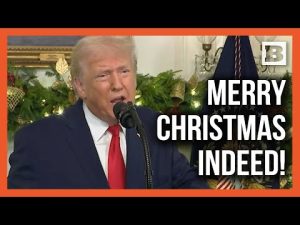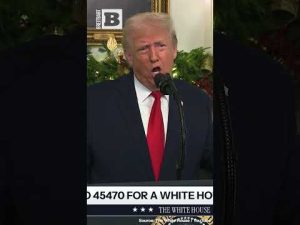**TikTok Tango: Why the Push to Ban the App May Not Be What It Seems**
In a digital age where social media dominates, one platform continues to stir up heated debates: TikTok. The whispers of an impending ban on the app have many wondering if this is truly about national security or if it’s rooted in something more political. Some believe that TikTok played a significant role in promoting conservative views, particularly those that aided Donald Trump’s election campaign. After all, the statistics are hard to ignore—Trump amassed two billion views while his opponents, including Kamala Harris, struggled to keep pace. Could it be that TikTok’s influence has made it a target for censorship?
Recently, the hustle and bustle of college campuses have become hotspots for political engagement, with conservative groups like Turning Point USA reaching younger demographics in ways many didn’t think possible. Their success can be linked to the viral content shared on platforms like TikTok, where conservatives gained an impressive 1.8 billion views. Such staggering numbers raise eyebrows and prompt reflections on what it means for the political landscape. If an app could sway opinions, it might just make those in power a bit uneasy.
During a recent outreach program at various universities, passionate individuals set out to persuade students to reconsider their political inclinations. Their dialogues reveal an interesting pattern. Many young voters, initially skeptical of conservative ideologies, expressed admiration for tangible policies, such as the benefits of home ownership under Trump’s administration. With inflation squeezing many households, the contrast between what was possible during Trump’s presidency versus the current administration’s policies became a hot topic among students—a topic so compelling, that even some self-identified liberals began to rethink their positions.
As discussions unfolded, the general sentiment seemed to be a love-hate relationship with the political landscape. For many students, this wasn’t just about who was in office but about the impact of the policies that affected their daily lives. Conversations transformed when students candidly acknowledged the struggles their families faced due to economic pressures and uncertain futures. For some, the practical benefits of a Trump presidency appeared more appealing than the emotional drama surrounding the former president’s personal life.
So, why this effort to ban TikTok if it’s been a fruitful channel for spreading conservative messages? Observers suggest that at its core, the push against the app may be an attempt to stifle a platform where ideas can flourish outside the traditional media outlets that often skew left. Freedom of speech is the crux of American democracy, and when that freedom extends to social media, all bets are off. The fear of losing influence could motivate those in power to consider extreme measures, like banning apps that amplify voices they would rather silence.
In the grand scheme of things, banning TikTok might look more like a strategic maneuver than a protective measure for the public. As political advertising evolves, the battle for young hearts and minds takes on a new face—one that thrives on viral content and digital outreach. While the future of TikTok hangs in the balance, one thing is clear: politics, social media, and public opinion are intertwined in ways that could very well shape the next election. So, as this digital drama unfolds, it’s crucial for everyone—young voters especially—to be vigilant and engaged. After all, the stakes have never been higher.







